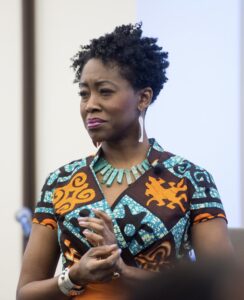
The Truth of These Matters…
“No. I’m not telling that. I don’t care if it helped. Naw!”
It was the end of the second year of COVID teaching, and I was telling a friend that the semester had been the first time in a long time that I felt like my students were really learning. They dug deep and came up with something solid: thoughtful pastoral care practices that were intellectually sound and soulful. It wasn’t just them… teaching had become new.
He asked me what made teaching different this time.
I cackled out loud and told the truth, “I brought somebody in to teach with me so that I could breathe when I wasn’t ‘on,’ I dropped a lot from the syllabus, slowed down to the speed of understanding, and acted like I knew it was hard out here (for them and me).”
My friend told me I had to write about it. Uh, no. Nope.
Until now, I was on some strange fence about talking about what I was doing differently. I vacillated between puffing my chest out to defiantly proclaim what I was.not.going.to.do, and passive aggressive silence in faculty conversations about teaching in an era of change brought on by COVID/COVID enlightenment.
The truth of the matter was that I made those changes for the sake of survival. Like many of us, I was exhausted. You know those social media threads that show students cute and fresh on the morning of their first day, but by 3 p.m. they look like the bottom of somebody’s shoe? Well, the closer I got to the start of the semester the more I felt like 3 p.m. before the first class of the semester even started.
I took my sanity and teaching seriously and made changes that I believed in. I was so excited about shedding the weight of trying to teach an entire semester by myself, and I invited a Mental Health First Aid instructor to embed a training as the meat of my pastoral care class. In light of all of the trauma and subsequent mental health challenges triggered by COVID losses, it only made sense. The course ended up heavy on mental health awareness and skill-building for mental health accompaniment, and lighter on theology and theories about practice. It was a challenging shift at times, but it was also the only thing that made sense. Right along with that came a willingness to create assignments but then modify and unapologetically drop them if other ways of nurturing and assessing learning became more apparent and relevant.
More than a few times, I looked at the class and asked them, “Where are we with this? Is this going to be helpful, or do we need to do something different? This doesn’t have to take us out.”
I tap these words out on the keyboard with fervor right now, and I was clear that this was the right thing to do for the sake of survival and learning. Even with that, there’s still a mélange of voices I’ve internalized tapping on my shoulder: “What do you think this is, a free-for-all? Who do you think you are to give up how you were taught and try something else?” Even worse, I hear my own voice telling me, “You’re dumbing it and yourself down. Folks (including yourself) need to step it up.”
That last voice—my own—that’s the one I was probably hiding from the most and perhaps it has and continues to have the most to teach me. What does it tell me about my formation in and for the task of higher education? Why have I equated shifting my pedagogy, reading load, and teaching strategies to correspond with the real-time challenges of life and learning with dumbing down? What manner of elitism was this, and what was I going to do about it now that I knew it was alive somewhere inside of me?
I’m writing about it to exorcise it. In writing, I hope to gather with others who will themselves to be wide awake about what the challenges of COVID have prompted us to examine within ourselves about why, what, and how we teach.
This blog is the first of three, the next of which will have to do with our sense, experience, and use of time in teaching. Time… who owns it?
Leave a Reply